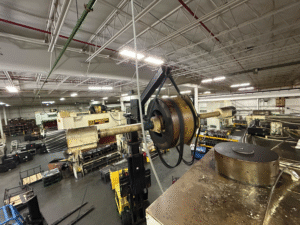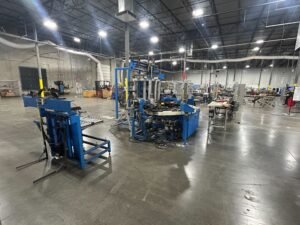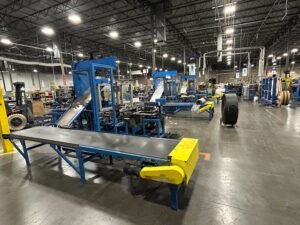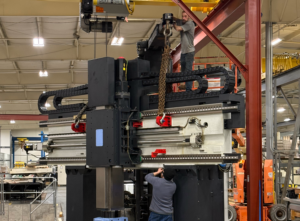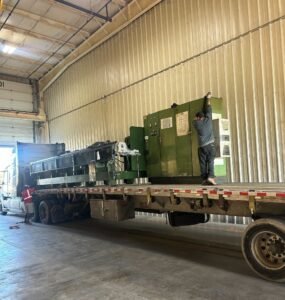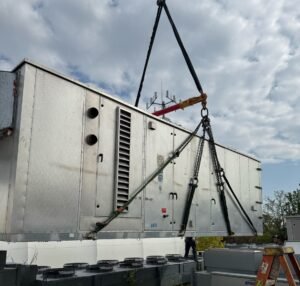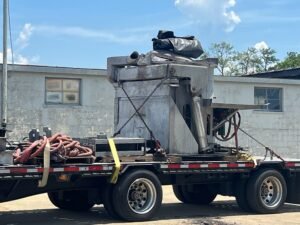Industrial equipment is the backbone of many manufacturing and production processes. When this equipment fails or needs maintenance, the downtime can be costly. Selecting the right repair service is crucial to ensure minimal disruption and longevity of your machinery.
Introduction
Industrial equipment is the backbone of many manufacturing and production processes. When this equipment fails or needs maintenance, the downtime can be costly. Selecting the right repair service is crucial to ensure minimal disruption and longevity of your machinery.
In this comprehensive guide, we will explore what to look for in industrial equipment repair services. From evaluating the expertise and experience of the service provider to understanding the importance of certifications and technology, we aim to provide you with a detailed roadmap to make an informed decision.
Importance of Industrial Equipment Repair Services
Minimizing Downtime
Downtime can have a significant financial impact on any industrial operation. Efficient repair services help minimize this downtime by providing quick and effective solutions. This not only helps maintain productivity but also ensures that deadlines and production schedules are met.
Extending Equipment Lifespan
Regular maintenance and prompt repairs can significantly extend the lifespan of industrial equipment. This reduces the need for frequent replacements and ensures a higher return on investment for the machinery.
Ensuring Safety and Compliance
Industrial equipment must adhere to stringent safety standards. Professional repair services ensure that all repairs and maintenance activities comply with these standards, thereby safeguarding the workforce and avoiding regulatory penalties.
Key Factors to Consider
When choosing an industrial equipment repair service, several factors need to be considered to ensure you select a reliable and efficient provider.
Experience and Expertise
The experience and expertise of a repair service provider are critical indicators of their capability. Providers with extensive experience are likely to have encountered a wide range of issues and developed effective solutions.
Certifications and Accreditations
Certifications from industry-recognized bodies ensure that the service provider adheres to high standards of quality and safety. These certifications also indicate that the technicians are well-trained and up-to-date with the latest industry practices.
Range of Services Offered
A comprehensive repair service provider should offer a wide range of services, from preventative maintenance to emergency repairs and equipment overhauls. This ensures that all your repair and maintenance needs can be met by a single provider.
Availability and Response Time
The availability of the service provider, especially in emergency situations, is crucial. Providers who offer 24/7 services and have a quick response time can prevent extended downtime and production losses.
Cost and Value for Money
While cost is an important factor, it should not be the sole criterion. It is essential to consider the value for money, which includes the quality of service, warranty policies, and the longevity of repairs.
Reputation and References
Reputation and customer references provide insights into the reliability and quality of the service provider. Positive testimonials and success stories indicate a track record of satisfied customers.
Use of Technology and Tools
The use of advanced technology and tools can significantly enhance the efficiency and effectiveness of repair services. Providers who invest in the latest diagnostic tools and use OEM parts are likely to deliver superior results.
Evaluating Experience and Expertise
Years in Business
The number of years a company has been in business is often a good indicator of their experience and stability. Long-standing companies are more likely to have developed robust processes and a deep understanding of industrial equipment repair.
Specialized Knowledge
Different industries have unique equipment and requirements. A service provider with specialized knowledge in your specific industry can offer more tailored and effective solutions.
Training Programs for Technicians
Ongoing training programs for technicians ensure that they are up-to-date with the latest repair techniques and industry standards. This continuous education is crucial for maintaining high service quality.
Certifications and Accreditations
Industry-Recognized Certifications
Certifications from recognized industry bodies, such as ISO, ASME, or OSHA, indicate that the service provider adheres to rigorous standards of quality and safety.
Compliance with Regulations
Industrial equipment repair services must comply with various regulations to ensure safety and efficiency. Providers who prioritize compliance help avoid legal issues and enhance operational safety.
Importance of Continuous Training
Continuous training and certification programs for technicians are essential to keep them updated with the latest industry practices and technological advancements. This ensures that the repair services remain effective and efficient.
Range of Services Offered
Preventative Maintenance
Preventative maintenance services include regular inspections and servicing to identify and address potential issues before they lead to equipment failure. This proactive approach helps in maintaining equipment efficiency and reducing the risk of unexpected breakdowns.
Emergency Repairs
Emergency repair services are critical for addressing sudden equipment failures that can halt production. Providers who offer 24/7 emergency services can quickly respond to such situations, minimizing downtime and production losses.
Equipment Overhauls
Equipment overhauls involve comprehensive servicing of machinery to restore it to optimal working condition. This can include replacing worn-out parts, recalibrating systems, and updating software.
Upgrades and Retrofits
Technological advancements often lead to the development of more efficient equipment components. Upgrade and retrofit services ensure that your equipment benefits from these advancements, improving performance and extending its lifespan.
Diagnostic Services
Advanced diagnostic services use state-of-the-art tools to accurately identify issues with equipment. This allows for precise repairs and reduces the risk of recurring problems.
Availability and Response Time
24/7 Service Availability
Industrial operations often run around the clock, making it essential for repair services to be available 24/7. Providers who offer round-the-clock services can promptly address issues, preventing extended downtime.
Geographic Coverage
The geographic coverage of a service provider determines how quickly they can respond to issues at your location. Providers with a broad service area or multiple locations can offer faster response times.
Response Time Guarantees
Some service providers offer response time guarantees, committing to address issues within a specified timeframe. This can be particularly important for critical operations where downtime can have significant financial impacts.
Cost and Value for Money
Transparent Pricing
Transparent pricing policies help you understand the costs involved in repair services. Look for providers who offer detailed estimates and clearly outline the cost of parts, labor, and any additional services.
Cost-Benefit Analysis
Consider the long-term benefits of investing in high-quality repair services. While the upfront cost might be higher, reliable repairs can reduce the frequency of breakdowns and extend equipment lifespan, offering better value for money.
Warranty and Guarantee Policies
Warranty and guarantee policies provide assurance of the quality of repair services. Providers who offer warranties on their work demonstrate confidence in their services and commitment to customer satisfaction.
Reputation and References
Customer Testimonials
Customer testimonials and reviews offer valuable insights into the service quality and reliability of a provider. Look for testimonials that highlight the provider’s strengths and how they have successfully addressed similar issues to yours.
Case Studies and Success Stories
Case studies and success stories provide detailed examples of how a service provider has effectively handled repair and maintenance challenges. These can give you a better understanding of their capabilities and approach.
Online Reviews
Online reviews on platforms like Google, Yelp, and industry-specific forums can provide a broader perspective on a service provider’s reputation. Pay attention to recurring themes in reviews, both positive and negative.
Use of Technology and Tools
Diagnostic Tools
Advanced diagnostic tools enable accurate identification of equipment issues. Providers who invest in these tools can offer more precise repairs and reduce the risk of recurring problems.
Use of OEM Parts
Using Original Equipment Manufacturer (OEM) parts ensures that the replacements are of the highest quality and compatible with your equipment. This can enhance the reliability and longevity of repairs.
Innovations in Repair Techniques
Innovative repair techniques, such as predictive maintenance and remote monitoring, can significantly improve the efficiency and effectiveness of repair services. Providers who embrace these innovations can offer more proactive and reliable solutions.
Conclusion
Summarizing Key Points
Choosing the right industrial equipment repair service involves evaluating various factors, including experience, certifications, range of services, availability, cost, reputation, and use of technology. By considering these factors, you can make an informed decision that ensures the reliability and efficiency of your equipment.
Making an Informed Decision
Making an informed decision about industrial equipment repair services is crucial for minimizing downtime, extending equipment lifespan, and ensuring safety and compliance. By thoroughly evaluating potential service providers based on the criteria outlined in this guide, you can select a partner who will help maintain the smooth operation of your industrial processes.



